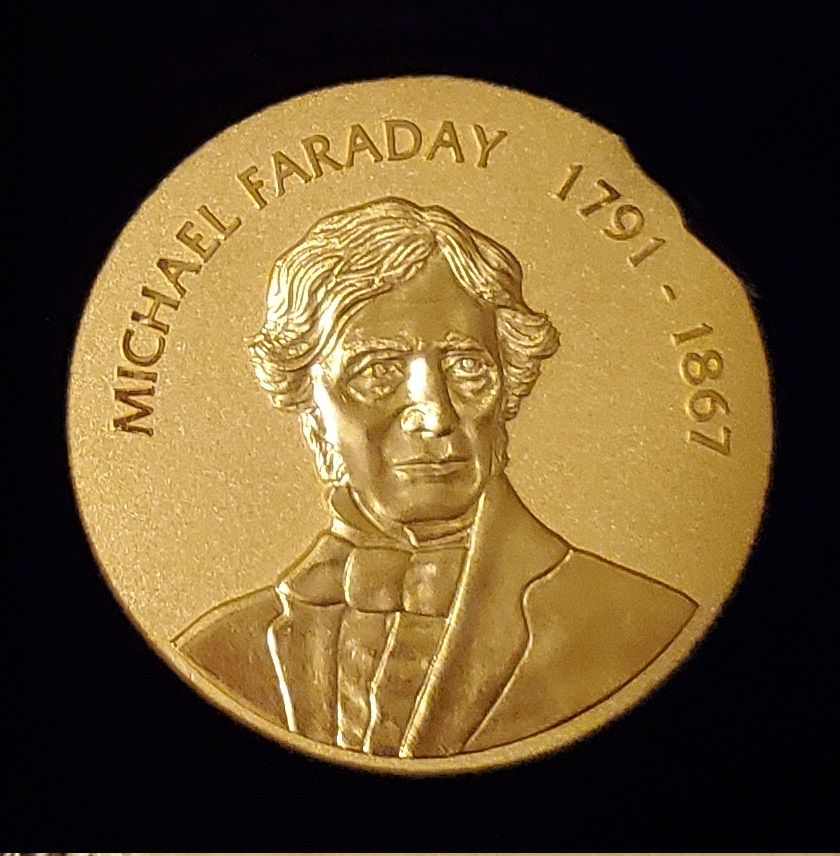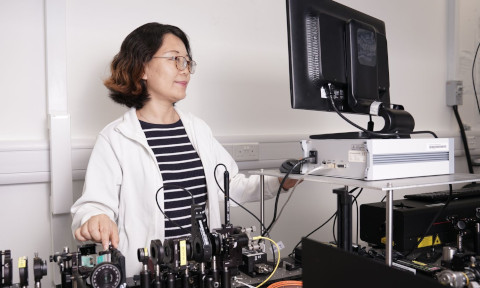Over the last twenty years, photonics has played a vital role in creating the world as we know it. It is impossible to imagine modern society without optical fibre telecommunication networks, high quality displays, precision laser-assisted manufacturing, or the compact semiconductor lasers used for data storage, printing, and many other purposes.
The Centre for Disruptive Photonic Technologies (CDPT) aims to be a leading player in the next stage of the photonics revolution. Combining interdisciplinary expertise within NTU with our collaborating partners in Singapore, Europe, USA, Australia and other countries, we are building a world-class centre in fundamental and applied photonics research.
News & Events
View AllProf. Nikolay Zheludev was awarded IOP's Michael Faraday Medal
The Institute of Physics has awarded its 2022 Michael Faraday Medal and Prize (for experimental physics) to CDPT Director Prof. Nikolay Zheludev in recognition of his “international leadership, discoveries and in-depth studies of new phenomena and functionalities in photonic nanostructures and nanostructured matter”. More information on the award is in the link here.
The Michael Faraday Medal and Prize is a gold medal awarded annually by the Institute of Physics in experimental physics. The award was established in 1914 and is made "for outstanding and sustained contributions to experimental physics."
- Achievements
- Faculty & Staff

Research
Learn More- Nanofabrication and growth techniques for photonic devices and materials
- Waveguide- and fibre-based platforms for controlling and manipulating light at small length scales
- Use of topological modes for robust light flow in photonic structures
- Photonic solutions for quantum control of light at the single- or few-photon level
Research Capabilities
Learn MoreThe CDPT facilities occupy two floors (over 1200 square meters) in the School of Physical and Mathematical Sciences at NTU, and include a modern nanofabrication cleanroom for creating device prototypes, as well as eight nanophotonics laboratories including two unique facilities for studying quantum nanophotonics: the Quantum Materials Discovery Facility and the Quantum Devices Manufacturing Facility. These facilities provide CDPT researchers with flexible capabilities for creating and analysing photonic devices operating over an broad range of the electromagnetic spectrum, from microwaves to the ultraviolet.














/enri-thumbnails/careeropportunities1f0caf1c-a12d-479c-be7c-3c04e085c617.tmb-mega-menu.jpg?Culture=en&sfvrsn=d7261e3b_1)

/cradle-thumbnails/research-capabilities1516d0ba63aa44f0b4ee77a8c05263b2.tmb-mega-menu.jpg?Culture=en&sfvrsn=1bc94f8_1)



.jpg?sfvrsn=c3aae03_3)


